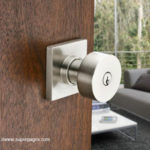Whichever sector of the food industry your company operates in, a commercial refrigerator will be an essential aspect of the day-to-day operation of the organisation. Restaurants, fast food outlets and supermarkets can all be subject to disruption when a refrigeration unit fails.

This means that if you experience a breakdown in your catering fridge, you could be left with spoiled stock, unhappy customers and lost income.
There are, however, steps you can take to prevent these kinds of problems and avoid unnecessary costs.
Problems
Once you have chosen your catering fridge from an experienced supplier such as fridgefreezerdirect.co.uk/catering-equipment, it is important to gather information on the efficient running of the machine from the provider, including optimum operating temperatures for your needs.
One simple piece of advice about avoiding problems with your fridge is to ensure that it is kept clean. The Food Standards Agency offers information in its Safer Food Better Business packs. Using a simple warm water and soap solution, the interior and exterior can be cleaned, but electrical elements should be avoided. Condensers and fans should be maintained by a professional.

When you are taking delivery of your new unit, it is important to be careful where you are going to place it. If the fans are obstructed or the vents blocked, either by being placed against a wall or too close to other units, the fridge will not perform efficiently. This can lead to problems with the compressor, which may be over-working.
Fluctuations
Stocking your unit efficiently is also important. Commercial refrigerators are not designed to be packed to the gills, but rather require air-flow to operate to their maximum. Overstocking the unit can not only lead to foodstuffs being damaged but also to a major breakdown in the unit.
The best way to avoid potential maintenance issues is to regularly inspect the fridge and keep an eye on breakdown indicators. Fluctuations in temperature are a clue that all is not well with the unit. This may be suggested by pooling water, ice inside the unit or deterioration of stock stored in the fridge.
Such variations could mean problems with the fan, thermometer, evaporator or the condenser, and it is essential to seek professional guidance. By having a regular maintenance contract in place, you will also help to extend the lifespan of your refrigeration unit.






